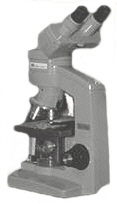
|
|
| Disease Databases atabases |
 |
|
|
|
| Phillip L. Pearl M.D. is a child neurologist
at Children's National Medical Center, Washington D.C., Associate Professor of Pediatrics
and Neurology at the George Washington University School of Medicine and is a member of
the PND Medical and Scientific Advisory Board. Dr. Pearl works closely with K. Michael
Gibson PhD, Director Biochemical Genetics Laboratory, Oregon Health Sciences University
and has been instrumental in diagnosing and treating children with SSADH. Recently Dr.
Pearl has initiated the development of a clinical database for patients with SSADH. The goal of the database is to create a central source for clinical information on patients with SSADH. This information will provide clinicians and investigators with important data such as patient history, signs and symptoms, treatments and standards of care. Presently there is no central source for this data and it is imperative that this information be available to assist with the investigation of future treatment modalities. Participation is entirely voluntary and anonymous. Any information obtained from the database will be done in an anonymous fashion in order to protect the confidentiality of patients and families. If you would like to participate in the database or would like further information about this effort please contact:
|
|
�
|
|
| Dr. Kathyrn Swoboda, M.D. is a clinical
geneticist and neurologist at the University of Utah School of Medicine and Primary
Children's Medical Center. Dr. Swoboda has been instrumental in diagnosing and treating
children with pediatric neurotransmitter diseases. Recently she has designed and
implemented a clinical and genetic relational database for patients with dopamine related
neurotransmitter disorders. She has designed a clinical questionnaire for families and is
in the process of designing an additional one for physicians. The goal is to correlate the information obtained from physicians and families with CSF neurotransmitter results. Hopefully, with the information gathered from the questionnaires, additional insights will be obtained about the signs and symptoms of pediatric neurotransmitter diseases and the medications that are being used to treat them. Also as part of this project, Dr. Swoboda would like to begin collection of blood samples for DNA extraction and permanent cell lines on all patients, their parents and one unaffected sibling if possible in order to facilitate additional studies. Having a repository of such samples in one place along with cell lines for a permanent source of DNA will facilitate research efforts on PND's. Participation is entirely voluntary and anonymous. Any information obtained from the database will be done in an anonymous fashion, in order to protect the confidentiality of patients and families. For further information about the database please contact:
|
|
� 2003 Pediatric Neurotransmitter Disease Association | Casinos Not on Gamstop |
www.pndassoc.org |
�